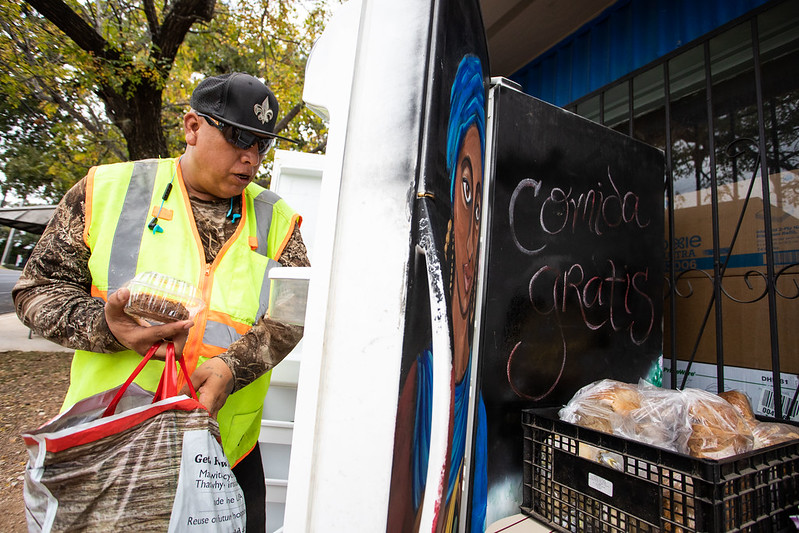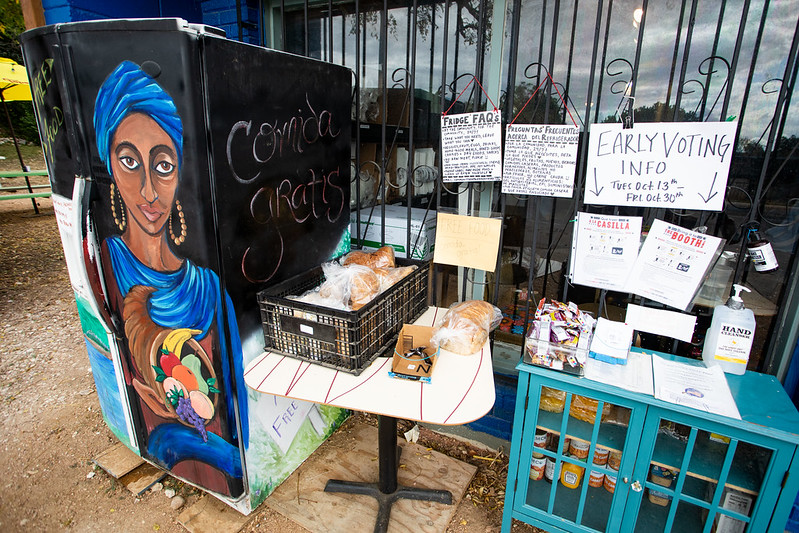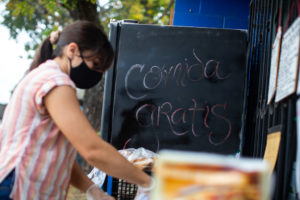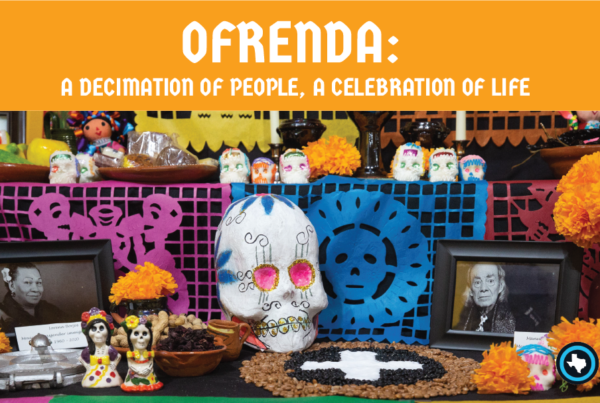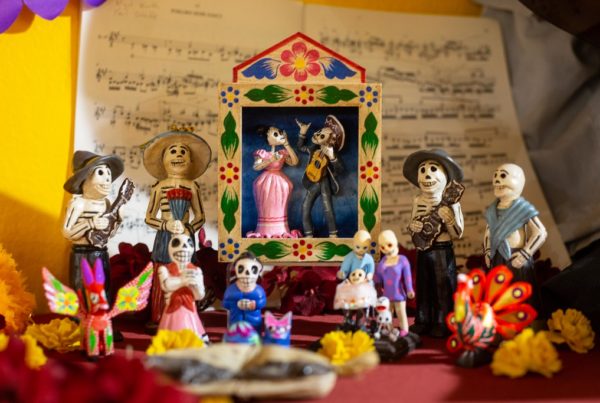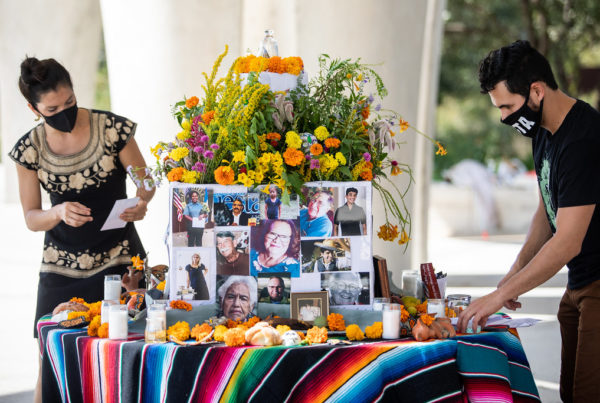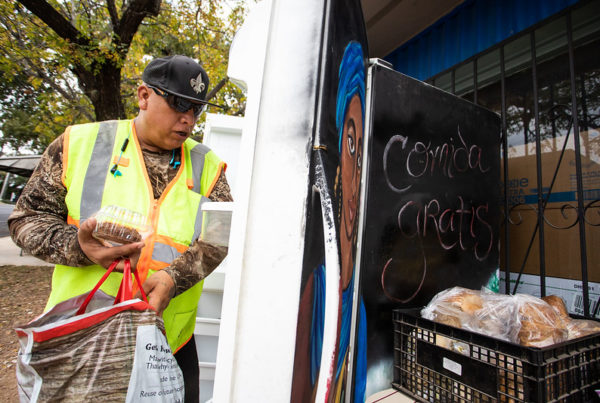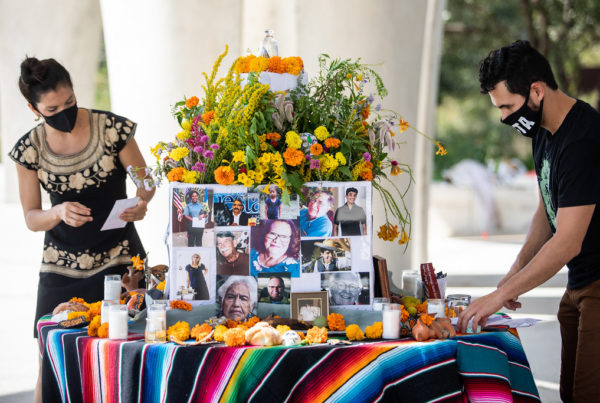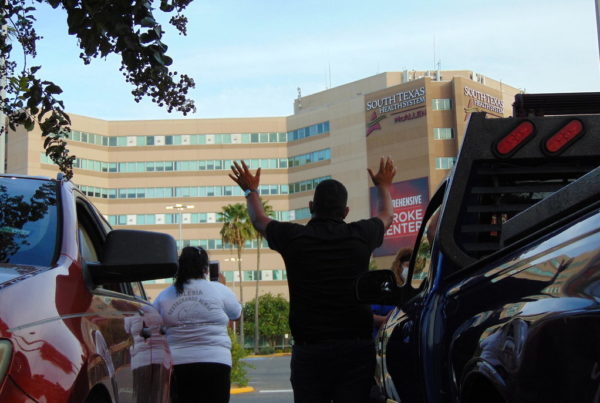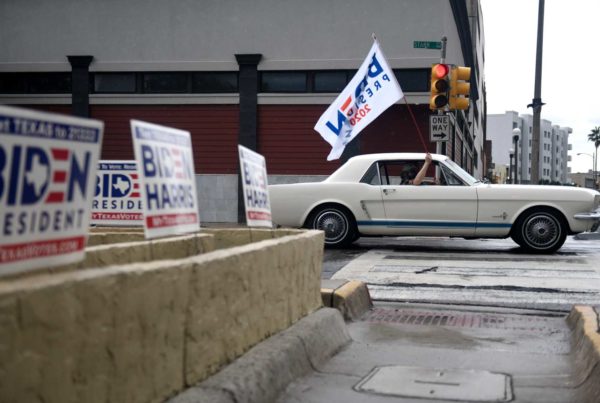It’s almost lunch time and Roy Coronado, his wife Jeannette and their 5-year-old daughter Arianna are outside Nixta Taqueria in East Austin.
The restaurant on 12th Street is closed but that’s OK because the Coronado family isn’t there for takeout. They came for the refrigerator outside of the eatery – the one with the words “Free Food” painted on its front.
“When we come here most of the time, we normally find stuff like eggs and milk and potatoes,” Coronado explained.
This is a part of the ATX Free Fridge Project. The owners at Nixta Taqueria volunteered to host the first fridge open to the public back in August, and Coronado, for one, is grateful.
“Because, you know what they did,” he said of the fridge’s owners as he choked back tears, “not only just helped my family put food on the table, but other people, too. That really means a lot to me; it means a lot to me because the struggle is real.”
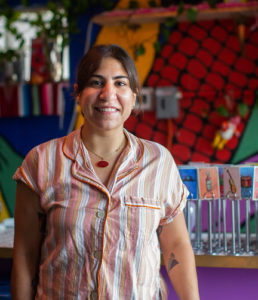 The fridge and pantry next to it basically act like a giant “take-a-penny, leave-a-penny” bowl. Local farmers and restaurants drop off produce and bread throughout the week. Neighbors and others also leave what they can. Even Coronado brought food to share.
The fridge and pantry next to it basically act like a giant “take-a-penny, leave-a-penny” bowl. Local farmers and restaurants drop off produce and bread throughout the week. Neighbors and others also leave what they can. Even Coronado brought food to share.
“We had a lot of peanut butter and stuff at the house. So I brought them peanut butter and crackers and stuff over here, too,” he said.
It’s this sense of community that inspired Nixta owners Sara Mardanbigi and Chef Edgar Rico to participate in the ATX Free Fridge Project. After all, their restaurant was only open four months before the pandemic hit. They are still open now, Mardanbigi reasons, because of that very community they are trying to help out.
“I think from the very beginning, there is sort of this idea of solidarity,” she said. “And that’s been the common thread throughout our first year. I don’t have all the answers. I don’t know what the future holds for Nixta. All I know is that people are really down and seeing just the physical manifestation of something like this Free Fridge has been really beautiful to see.”
Mardanbigi and Rico are both children of immigrants. Rico’s parents immigrated from Mexico, and Mardanbigi’s parents came from Iran. As entrepreneurs and partners they’ve chosen to invest their life here in Austin’s Eastside.
“So for us living in this neighborhood and seeing what we can do to try and combat some of those things like food insecurity. We’re a restaurant – how do we use our resources? How do we use our collective community?” Mardanbigi said.
East Austin, though highly gentrified, is still home to many minority low-income families – a group that is most likely to be food insecure during and before the pandemic, according to Patrick Stover, vice chancellor and Dean at Texas A&M University’s College of Agriculture and Life Sciences.
“Blacks and Hispanics had much higher rates of food insecurity than whites,” he said.


